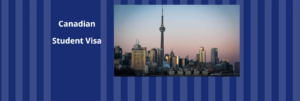
Relocating to a new country can be thrilling yet daunting, particularly when you’re also managing the challenges of being a student. CIC News has put together a list of steps to help make your transition to Canada as seamless as possible.
Table of Contents
Getting Started
Regional Tenant Regulations
Understanding your rights and responsibilities as a tenant—such as the need for written notice before property inspections, maintenance timelines, and eviction procedures—can help prevent various housing-related issues. Taking the time to research these regulations is essential.
By-laws concerning property maintenance involve responsibilities for both landlords and tenants. Tenants are expected to keep the building clean and in good condition while promptly reporting any issues or incidents.
In cases of disputes between tenants and landlords, the resolution process varies by province. For instance, tenants in Ontario will refer to the Ontario Landlord Tenant Board (LTB), whereas those in British Columbia will turn to the Residential Tenancy Branch (RTB). It’s advisable to visit your local government website to understand how disputes are managed in your province.
Rent Control
While some areas in Canada have rent control measures in place, most do not. For example, British Columbia has implemented a rent increase cap of 3.5% for the year 2024, and landlords must provide three full months’ notice before raising the rent.
Here’s a table summarizing rent control by province, including whether rent is controlled and the annual increase for 2025:
| Province | Rent Controlled? | Annual Increase for 2025 |
|---|---|---|
| Alberta | No | NA |
| British Columbia | Yes | 3% |
| Manitoba | Yes | 1.7% |
| New Brunswick | No | NA |
| Newfoundland and Labrador | No | NA |
| Northwest Territories | No | NA |
| Nova Scotia | No | NA |
| Nunavut | No | NA |
| Ontario | Yes* | 2.5% |
| Prince Edward Island | Yes | TBA |
| Quebec | No | NA |
| Saskatchewan | No | NA |
| Yukon | No | NA |
For residential properties constructed or first occupied before November 15, 2018.
Campus Rules and Regulations
Campuses often have distinct regulations compared to the surrounding communities. For instance, while smoking tobacco and cannabis is legal in many Canadian regions, university and college campuses are considered private property, and many enforce “smoke-free” policies that prohibit smoking anywhere on campus.
Other examples of campus regulations include designated quiet hours to reduce noise disruptions and rules regarding vehicle usage and parking on campus.
It’s beneficial to familiarize yourself with these regulations, which are usually available on your university’s website or in printed form from the student union.
Local By-Laws
As the term suggests, local by-laws differ across Canada. For example, the city of Toronto enforces quiet hours from 11 PM to 7 AM on weekdays and from 11 PM to 9 AM on weekends.
If you are coming from Europe or another region with more lenient drinking laws, it’s particularly important to pay attention to regulations that prohibit alcohol consumption during specific times and in public areas.
You can find your city’s by-laws on your municipal government’s website.
Social Insurance Number (SIN)
If your study permit allows you to work off-campus, you will need to apply for a Social Insurance Number (SIN) upon entering Canada. This can be done through the Government of Canada website and requires your study permit, passport, and supporting documents.
The application process is relatively quick. Once you receive your SIN, you can work for any employer permitted under your study permit conditions. The SIN is also used by the Canada Revenue Agency (CRA) for tax collection, benefits, and refunds.
Health Insurance – Emergency and Major Medical
Some students may be automatically enrolled in a group health plan through their university, which is included in student fees. This plan typically covers immediate emergency situations, such as broken bones or head trauma, as well as unforeseen, life-threatening health issues like cancer.
While some provincial health insurance plans cover international students, others require you to obtain and pay for your own insurance. Even if your province offers coverage, you might face a waiting period.
Health Insurance – Extended Health Coverage
Extended health coverage refers to insurance for services not covered by provincial or territorial plans. In Ontario, for instance, extended health coverage typically includes:
- Prescription medications
- Dental care
- Paramedical services (e.g., physiotherapy, massage therapy, chiropractic care, chiropody, naturopathy, psychotherapy)
Many students can access extended health coverage through group insurance plans provided by their university or student union. If available, this coverage may be optional or mandatory, and you may have the opportunity to enroll your spouse and/or dependents in the plan.

Primary Care Provider
Most universities offer healthcare facilities through campus health services. Student medical clinics provide non-emergency care on campus, including access to prescriptions, check-ups, and vaccinations.
The initial visit typically requires filling out an online form, and appointments are usually necessary to see a practitioner.
Settling In
Waste Collection
Waste collection (garbage, recycling, and composting) varies depending on your location. If you reside on campus or in an apartment building, inquire with your university or building management/landlord about waste disposal procedures.
If you live in a detached home, townhouse, duplex, triplex, or fourplex, you will likely have curbside waste collection, usually on a weekly basis. Check your municipality’s website for specific waste collection details. Most urban areas in Canada separate household waste into garbage, recycling, and green bin waste.
Phone and Internet
Moving to another country can be isolating, so having reliable, fast internet and a phone plan with sufficient data and minutes is essential for staying connected with friends back home and meeting new people on campus.
Canada is known for having some of the most expensive data plans, but shopping around before the fall term begins can help you take advantage of back-to-school promotions that offer significant savings.
Looking for home internet options (if your campus doesn’t provide it) at the same time may also lead to package deals from some providers.
FOR MORE INFORMATION CLICK ON : https://esseindiacomplaints.com/





